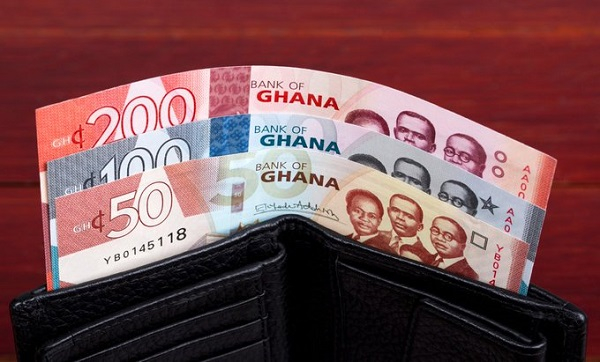The Institute for Economic Research and Policy Promotion (IERPP) says it has been vindicated by the International Monetary Fund’s (IMF) recent caution to the government over its management of the cedi’s stability.
In its fourth review under the Extended Credit Facility Arrangement with Ghana, the IMF Executive Board expressed concern about the government’s continued support for the cedi through direct foreign exchange interventions, rather than allowing market forces to determine its value.
“The Bank of Ghana should maintain an appropriately tight monetary stance until inflation returns to its target, reduce its footprint in the foreign exchange market, and allow for greater exchange rate flexibility, including by adopting a formal internal FX intervention policy framework,” the IMF stated.
In a statement signed by its Executive Director, Professor Isaac Boadi, who also serves as Dean of the Faculty of Accounting and Finance at UPSA, the IERPP noted that it had previously issued similar warnings to the government, though those cautions went unheeded.
“These warnings from the IMF do not merely validate, but vindicate the concerns that the Institute for Economic Research and Policy Promotion (IERPP) raised earlier,” the statement read.
The IERPP accused the government of deliberately injecting large amounts of dollars into the market to prop up the cedi’s value.
“While this may create an illusion of short-term stability, it distorts market dynamics, encourages cheap imports, and undermines local production, a toxic combination for long-term economic health,” the Institute warned.
It further criticised the Bank of Ghana (BoG) for lacking a transparent foreign exchange intervention policy.
“To date, the BoG has not adopted a clear, published FX intervention framework. Its market operations remain ad hoc and opaque, leading to uncertainty and speculation,” the statement said.
“Instead of allowing the exchange rate to reflect actual market forces, the BoG has continued aggressive dollar sales, especially during politically sensitive periods. This short-term approach masks deeper structural issues, exactly the kind of problem both the IMF and IERPP cautioned against.”
The statement concluded, “Despite these aligned warnings, the actions taken by the BoG and government show a clear disregard for the advice of both the IMF and IERPP.”
Read the IERPP’s full statement below:
Advised but unmoved: The IERPP, and BoG’s policy disconnect
The IMF offered sound advice, IERPP gave a political warning, perhaps that’s exactly why BoG and the government chose not to listen to IERPP.
July 7, 2025, IMF Executive Board Completes the Fourth Review under the Extended Credit Facility Arrangement with Ghana. In paragraph 17, IMF states:
“The Bank of Ghana should maintain an appropriately tight monetary stance until inflation returns to its target, reduce its footprint in the foreign exchange market, and allow for greater exchange rate flexibility, including by adopting a formal internal FX intervention policy framework.”
The IMF urged the Bank of Ghana (BoG) to do three critical things:
“The Bank of Ghana should maintain an appropriately tight monetary stance until inflation returns to its target…”
Keep interest rates high enough to bring inflation back to the Bank’s official target. Easing too soon could allow inflation to spiral again.
“…reduce its footprint in the foreign exchange market…”
The BoG should stop frequently selling U.S. dollars in the market just to stabilize the cedi. Constant intervention distorts market signals and can drain precious reserves.
“…and allow for greater exchange rate flexibility…”
The Bank should allow the cedi to move more freely in response to supply and demand, rather than trying to fix or heavily manage its value.
“…including by adopting a formal internal FX intervention policy framework.”
The Bank of Ghana should have a clear, rules-based policy for when and how it intervenes in the FX market, rather than acting unpredictably.
These warning from IMF did not validate but vindicates what the Institute for Economic, Research and Policy Promotion (IERPP) echoed the same concerns. Their message was blunt:
“The cedi’s strength is artificial.”
IERPP claimed the government was deliberately injecting large amounts of dollars into the system to prop up the cedi’s value. While this may make the currency look stable in the short term, it distorts market dynamics, encourages cheap imports, and hurts local production — a toxic combination for long-term economic health.
To date, BoG has not adopted a clear, published FX intervention framework. Its market operations remain ad hoc and opaque, leading to uncertainty and speculation. Instead of allowing the exchange rate to reflect actual market forces, the BoG continued aggressive dollar sales, particularly during sensitive periods.
This short-term tactic masked deeper economic issues, exactly what both institutions cautioned against. Despite these aligned warnings, the actions taken by the BoG and government show a clear disregard for both the IMF and IERPP advice.
Author:
Prof. Isaac Boadi
Dean, Faculty of Accounting and Finance, UPSA
Executive Director, Institute of Economic and Research Policy, IERPP
AME
Cheque Fraud EXPOSED: How it works and how to stay safe
